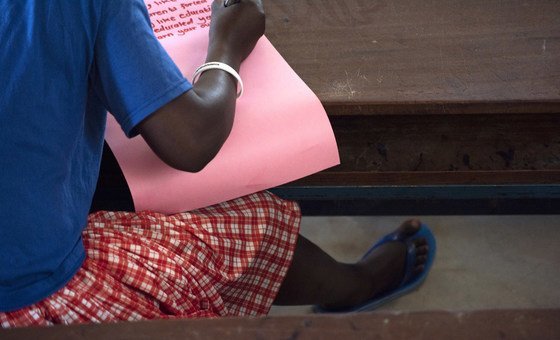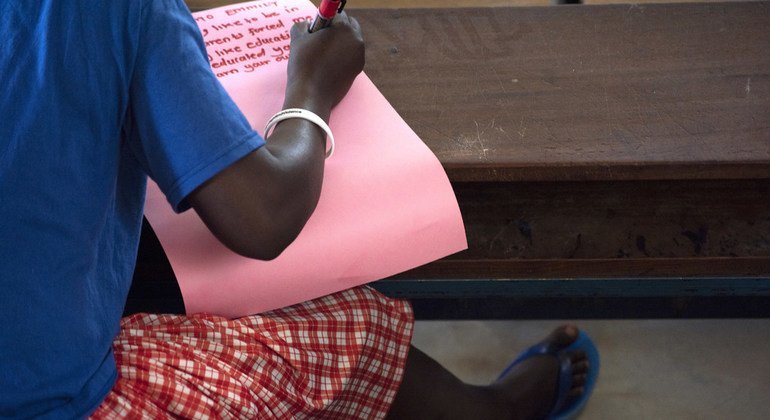
Specifically, the report points out that only two out of five schools worldwide provide menstrual health education while less than one in three schools globally has menstrual waste bins in girls’ bathrooms.
Even further, 427 million children are unable to access sanitation services that are “single-sex and usable at school”; meanwhile one in five schools lacks sanitation services altogether.
UNICEF Goodwill Ambassador, actress Millie Bobby Brown, said she dreams, “…of a world where periods don’t hold us back” in a video statement.
Ms. Brown said the silence surrounding periods is unbearable for millions.
“Now, imagine this experience… Only it’s during a war or natural disaster. No running water, no electricity, nowhere safe to go,” Ms. Brown said.
The UNICEF Goodwill Ambassador said she hopes her video will “bring attention to millions around the world whose lives come to a stop every month because they are unable to access menstrual products and support.”
Period poverty
UN Women is also using World Menstrual Hygiene Day to raise awareness of period poverty and the actions needed to end it.
The agency recognises period poverty as the “inability to afford and access menstrual products, sanitation and hygiene facilities and education and awareness to manage menstrual health”; it is caused by stigma, high costs of menstrual products and lack of water and sanitation facilities.
UN Women says that period poverty can affect girls’ and women’s education since many are forced to miss school days because of their inability to access appropriate resources. The issue also has “dangerous and immediate health consequences” for women and girls who are sexually abused, pushed into early marriage or experience female genital mutilation as a result of their period.
UN Women says policies and budgets can effectively address and end this issue by ensuring safe sanitation services in institutions, making menstrual products free and more affordable, and reversing periods’ stigmas.
UN Secretary-General condemns Korea’s military missile launch
UN Secretary-General António Guterres strongly condemns the “attempted launch of another military satellite using ballistic missile technology by the Democratic People’s Republic of Korea (DPRK).” his spokesperson, Stéphane Dujarric, said on Tuesday.
According to news reports, the DPRK launched a satellite rocket on Monday that exploded shortly after liftoff.
Mr. Dujarric said, “Any launch by the DPRK using ballistic missile technology is contrary to the relevant Security Council resolutions.”
The Secretary-General’s spokesman said Mr. Guterres is calling on the DPRK to adhere to its “international obligations under all relevant Security Council resolutions.” He also expects the DPRK to promptly resume conversations without preconditions to accomplish sustainable peace and verifiable denuclearization of the Korean Peninsula.
The President of the General Assembly, Dennis Francis, echoed these comments and also called on the DPRK to “fully comply with these binding obligations.”
Sudan: Ongoing clashes in
Turning to Sudan, where the UN Office for the Coordination of Humanitarian Affairs (OCHA) reports “an increasingly dire humanitarian situation” in El Fasher in North Darfur.
Ongoing clashes have left many parts of the city without electricity and water, while a large segment of the population lacks access to basic necessities, including food and healthcare services.
OCHA has also received deeply worrying reports that medical facilities, displacement camps and critical civilian infrastructure have been impacted by the hostilities.
The International Organization for Migration (IOM) indicates that about 58,000 people from El Fasher have been displaced since 1 April and many more civilians, including children and older people, are experiencing difficulties getting to safer areas.
OCHA urges the parties involved in the conflict to respect international humanitarian law, allow the safe passage of civilians and humanitarian aid, and stop the fighting.”



